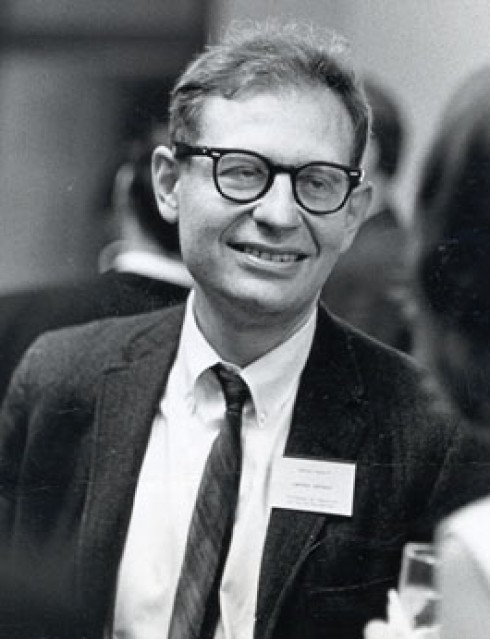Most people who know of Laurence Kohlberg know him as the psychologist who did so much work on how we develop our moral reasoning. He’s most famous for his theory of the stages of moral development.
So it’s ironic that Kohlberg developed his theory by interviewing people who took part in Stanley Milgram’s obedience research. The men were colleagues at Yale briefly in 1961 just as Milgram’s research was beginning.
During that time Kohlberg often watched the experiments in action.
Not surprisingly for a man used to reflecting on morals and ethics, Kohlberg came to regret his involvement in the obedience research. He wrote a letter to the New York Times in 1974 in response to reviews of Milgram’s book ‘Obedience to Authority. An experimental view.’
Kohlberg said that he was sorry he’d just stood by and watched the anguish of Milgram’s subjects and he was sorry that he’d used the research for his own ‘intellectual advantage’. In particular he regretted his passivity with Stanley Milgram.
“At the time I did not have what I now have, a conviction that I could have intervened, not by force but by moral reason to aid my friend Milgram in clarifying and developing his own moral reasoning about what he was doing.”
But Stanley Milgram had similar thoughts, he just never made them public. He struggled with the pain and anguish that he was putting his subjects through. He wrote about his misgivings in his notebook:
“If we fail to intervene, although we know a man is being made upset, why separate these actions of ours from those of the subject, who feels he is causing discomfort to another… why do we feel justified in carrying through the experiment, and why is this any different from the justifications that the obedient subjects feel.”
The difference between Kohlberg and Milgram was that Kohlberg publicly expressed his regrets. Milgram was publicly silent about his private doubts.
Kohlberg likely never knew that he and Milgram had felt the same way. From Kohlberg’s point of view, Milgram suffered from a case of arrested moral development.
But Milgram’s notebook shows that he was sensitive to what he was putting his subjects through. But admitting it was quite another matter.





1 Comment
Pingback: Lights, camera – Obedience! | Gina Perry